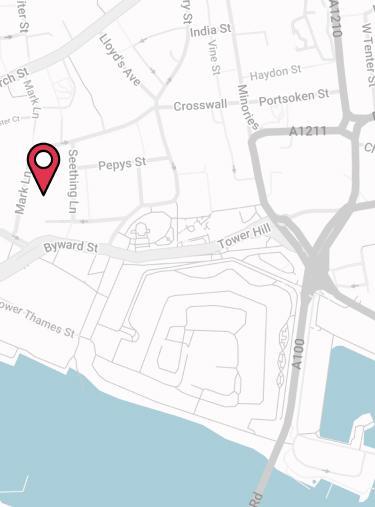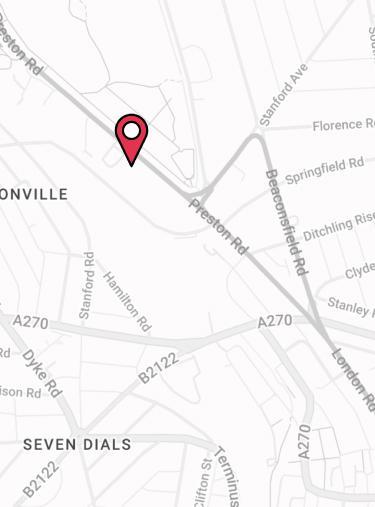
Life Insurance, Critical Illness Cover & Income Protection
Life Insurance, Critical Illness Cover and Income Protection are the three pillars of the protection insurance market.
Each product is designed to cover a very different risk, however, so it’s important to understand the difference between them before you make any decisions.
- Life Insurance
Pays out a cash lump sum should you pass away during the term of the policy (or a regular income if you’ve opted for Family Income Benefit). - Critical Illness Insurance
Pays out a cash lump sum should you be diagnosed with an insurer-specified serious (or ‘critical’) illness, e.g. cancer, a heart attack or stroke. - Income Protection
Pays out a regular income if you’re signed off work for any medical reason that prevents you doing your job.
Why Critical Illness Insurance?
Whether on its own or packaged with Life Insurance, Critical Illness Cover pays out a lump sum if you’re diagnosed with a serious illness.
This is typically used to repay a mortgage or other debt, or to adapt a home in the event of a serious disability.
The main three claims on these policies are for cancer, heart attacks and strokes.
Why Life Insurance?
One of the biggest reasons people take out Life Insurance is to cover a mortgage. This ensures their loved ones can remain in the family home if the policyholder dies before paying off the loan.
Other reasons to take out Life Insurance include wanting to make sure the family is financially secure after the death of a breadwinner, to meet an inheritance tax bill or to take care of funeral costs.
Why Income Protection?
Income Protection is a comprehensive sickness insurance policy designed to pay out for anything that medically prevents you from doing your job.
It’s more wide-reaching than Critical Illness Cover, which demands your illness must be one specified in the policy and of a certain severity to be able to claim.
Major claims on such policies are for bad backs and mental health issues; these are by no means critical but can be nonetheless debilitating.
What is Life Insurance?
Life Insurance is designed to pay out a cash lump sum if you pass away during the term of the policy. There are two types of Life Insurance: Term Insurance (which is split into Decreasing Term and Level Term Life Insurance) and Whole of Life Cover.
Term Life Insurance
Term Insurance lasts for a set term and then ends. It’s the most common type of Life Insurance and is typically used to cover a mortgage.
Decreasing Term Insurance is suited to straightforward repayment mortgages, where the amount owed falls over time. Here the amount you’re insured for falls alongside your outstanding mortgage balance.
Level Term Insurance is better for interest-only mortgages, where the outstanding mortgage balance remains fixed until the end of the mortgage term.
Level Life Insurance can also be used for family protection, so that you can ensure your loved ones will receive the same benefit if you die in year 1 of the policy as if you died in year 25.
Family Income Benefit
Family Income Benefit is a type of term life cover. Rather than paying out a single lump sum, it pays out a regular and more manageable income to your loved ones to allow them to maintain their lifestyle should you unfortunately pass away.
Whole of Life Insurance
Whole of Life Insurance, on the other hand, lasts until you pass away, no matter when that may be, providing you keep up with the premiums.
Given the payout is guaranteed, it’s typically used to meet definite costs that will arise on your death, such as an inheritance tax liability or paying for a funeral.
The guaranteed payout means that premiums are typically more expensive than for term assurance.
Joint Life Insurance
Couples with joint liabilities, such as a mortgage, often take out Joint Life Insurance. This covers two lives under one policy.
Such policies are typically written on a ‘joint life, first death’ basis, which means the policy pays out on the death of the first partner.
However, this means that after the death of the first partner, the entire policy is void. The second partner is left without any Life Insurance at all.
For this reason, it may be better to consider two single Life Insurance policies, one for each individual. This doesn’t usually cost much more than a Joint Life Insurance policy and you get two payouts, one on the death of each partner.
Life Insurance with Critical Illness Cover
With Term Insurance, it’s possible to ‘bolt on’ Critical Illness Insurance to offer a more comprehensive level of cover as it will pay out on diagnosis of a critical illness as well as death.
A critical illness can deal just as large a financial blow to a family as a death, so many people find it useful to have both options included. A payout can be used to clear a mortgage or adapt the home to accommodate a disability.
If you meet all the criteria to receive a 100% payout on the Critical Illness element of the policy, then in most cases the policy ceases, leaving you without any Life Insurance and potentially struggling to find a new policy given your recent illness.
What is Critical Illness Insurance?
Critical Illness Insurance and Income Protection may sound similar to but in fact they’re very different.
While Income Protection is designed to cover you for anything that medically prevents you from doing your job, Critical Illness Cover will only pay out if you’re diagnosed with a serious (i.e. critical) illness.
The three biggest claims on Critical Illness Cover are for cancer, heart attacks and strokes. Other reasons for claiming include multiple sclerosis (MS) and Parkinson’s disease.
To claim on a Critical Illness policy, you have to be ill with a condition specified in the policy. Your policy will also detail the severity of the illness required to make a claim. This is compared to Income Protection, which will not only pay out for critical illnesses but any other condition that prevents you working.
A typical Critical Illness Insurance policy will cover around 40 conditions, but there are policies on the market that cover fewer than 10 or more than 120, so it pays to read each policy carefully.
Another major difference between Critical Illness Cover and Income Protection is that while Income Protection pays out a regular income (for as long as you need it if you’ve opted for long-term cover), Critical Illness Insurance only pays out once in a lump sum.
This is typically used to repay a mortgage, so there may not be much left over to support day-to-day expenditure if you were too ill to work.

Critical Illness Cover certainly has its place, particularly when combined with Life Insurance and used to protect a mortgage. However, it’s not necessarily the best option to protect your income long-term.
Choosing comprehensive, own occupation and long-term Income Protection policy usually provides better salary insurance.
Samantha Haffenden-Angear
Independent Protection Specialist at Drewberry
What is Income Protection?
Income Protection is designed to insure your wages if accident or sickness prevents you from working.
Also known as Accident & Sickness Insurance, it pays out a proportion of your gross (pre-tax) income to cover your core outgoings if you’re unable to do your job.
You’ll receive a monthly income – a long-term policy will pay out for as long as you need it, right up until retirement – to ensure you can keep up with all your daily living expenses while you’re off work.

When the ‘own occupation‘ definition of incapacity is used, the policy will pay out for any illness or injury that prevents you from doing your own specific job.
This is the most comprehensive definition of incapacity and means it’s the easiest to make a successful claim.
Victoria Slade
Independent Protection Specialist at Drewberry
Income Protection or Critical Illness Cover?
Key Differences | Income Protection | Critical Illness Cover |
|---|---|
Pays out a regular income | Pays out a cash lump sum |
Covers a set proportion of your wages | Benefit can be as much as is required to align with your needs |
Typically used to cover everyday expenses | Generally used to repay a mortgage or make home modifications |
Can claim as many times as you need to and, with long-term cover, for as long as you need to | Can only claim once for the full benefit; then the policy terminates |
Most common claims are musculoskeletal (e.g. back pain) and mental health (e.g. stress) | Three most common claims are for cancer, heart attacks and strokes |
A couple would need two separate Income Protection policies | Critical Illness Cover can be taken out jointly with a partner along with Life Insurance |
Benefit is usually, but not always, paid out after a deferred period | Benefit pays out once you’ve met the criteria for a claim |

There are a number of key differences between Critical Illness Insurance and Income Protection.
Which one is right for you depends on your circumstances, but if you’re trying to decide between the two we’d typically recommend Income Protection because it tends to offer more comprehensive cover.
Samantha Haffenden-Angear
Independent Protection Specialist at Drewberry
Life Insurance with Critical Illness Cover and Income Protection
Life Insurance, Critical Illness Cover and Income Protection are the three mainstays of the UK protection market. But do you need all three policies to be adequately protected?
This depends entirely on your circumstances. Where Income Protection and Critical Illness Cover are compared like-for-like for income continuation, Drewberry would usually recommend Income Protection as it provides a more comprehensive and longer-term cover.
However, in some circumstances it may make sense to run these schemes in parallel with each other, perhaps with a small critical illness policy to pay for modifications to a home in the event of a disability. As Income Protection doesn’t pay out a lump sum, there would be no immediate payout if your home needed wheelchair ramps or an accessible bathroom, for instance.
Alternatively, if you don’t have Private Health Insurance you may want a cash lump sum from Critical Illness Insurance to pay for private medical treatment. This may particularly be so in the case of cancer, where often private healthcare providers offer access to new and novel cancer drugs not yet available on the NHS.
It’s very common for people to run Life Insurance alongside Income Protection, but there is no product on the market currently where this can be done as a single policy. You’d need two policies for this level of protection. Most UK Life Insurance providers, on the other hand, will allow you to add on Critical Illness Cover for an extra charge.
Get Specialist Life Insurance and Income Protection Advice
A financial specialist such as one of the team here at Drewberry can assess your needs and steer you towards the best protection insurance for your circumstances.
We can talk through your options and find you the best balance. Obviously having no protection at all isn’t ideal, but at the same time there’s little point over-insuring yourself and paying a great deal of money for too much cover that you may not necessarily need.
Why Speak to Us…
We started Drewberry because we were tired of being treated like a number and not getting the service we all deserve when it comes to things as important as protecting our health and our finances. Below are just a few reasons why it makes sense to let us help.
- There is no fee for our service
- We are independent and impartial
Drewberry isn’t tied to any insurance company, so we can provide completely impartial advice to make sure you get the most appropriate policy based solely on your needs. - We’ve got bargaining power on our side
This allows us to negotiate better premiums for you than you going direct yourself. - You’ll speak to a dedicated specialist from start to finish
You will speak to a named specialist with a direct telephone and email. No more automated machines and no more being sent from pillar to post – you’ll have someone to speak to who knows you. - Benefit from our 5-star service
We pride ourselves on providing a 5-star service, as can be seen from our 4100 and growing independent client reviews rating us at 4.92 / 5. - Gain the protection of regulated advice
You are protected. Where we provide a regulated advice service we are responsible for the policy we set-up for you. Doing it yourself or going direct to an insurer won’t provide this protection, so you won’t benefit from these securities. - Claims support when you need it the most
You have support should you need to make a claim. The most important thing when it comes to insurance is that claims are paid and quickly. We are here to support you during the claims process and make sure it’s as smooth and stress free as possible.
Contact Us
125-135 Preston Road
Brighton
BN1 6AF
Cookies
Drewberry™ uses cookies to offer you the best experience online. By continuing to use our website you agree to the use of cookies including for ad personalization.
If you would like to know more about cookies and how to manage them please view our privacy & cookie policy.








